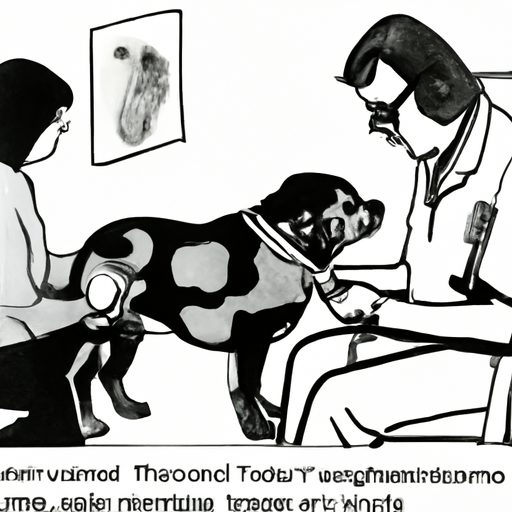Understanding Canine Tumors
As a caregiver, your pet’s health is undoubtedly your top priority. So when you find a strange lump or bump on your dog’s skin, it’s only natural for alarm bells to ring. Tumors in dogs can appear in a variety of ways, and not all are malignant.
Different kinds of tumors can present differently, but there are some common characteristics you can watch out for. They can range in size from a tiny pea to a large mass, and may be either under the skin or on the surface. The texture can be firm or soft, and the color can vary. Some tumors may even cause changes in your dog’s behavior.
Identifying Types of Tumors
There are several types of tumors that commonly affect dogs. Identification can be difficult without a biopsy, but here’s a general overview:
- Lipomas: Soft, fatty lumps found under the skin, usually harmless.
- Mast cell tumors: Often red, itchy, and inflamed, these can be serious and require immediate attention.
- Melanomas: Dark, pigmented masses that can appear anywhere on the body.
- Histiocytomas: Small, red bumps that are commonly found on young dogs.
- Osteosarcomas: Hard, bony lumps that typically occur on the legs of large breeds.
| Type of Tumor | Characteristics | Typical Location |
|---|---|---|
| Lipoma | Soft, fatty | Under the skin |
| Mast Cell Tumor | Red, itchy | Anywhere |
| Melanoma | Dark, pigmented | Anywhere |
| Histiocytoma | Small, red | Anywhere |
| Osteosarcoma | Hard, bony | Legs |
Taking Action: What to Do If You Discover a Lump
Firstly, don’t panic. Not every lump or bump is a tumor, and not every tumor is cancerous. However, you should always check with your vet if you discover anything unusual on your pet’s skin. They can conduct tests such as a biopsy or fine needle aspirate to determine whether the lump is a cause for concern.
The Importance of Regular Check-ups
Regular check-ups are the best way to catch any potential health issues early. Your vet can perform a thorough physical examination and advise you on any necessary tests or treatments. It’s also important to regularly check your dog at home. Run your hands over your dog’s body, feeling for any unusual lumps or bumps.
FAQ
Q: Are all dog tumors cancerous?
A: No, not all tumors are cancerous. Some are benign, meaning they won’t spread or cause serious health problems.
Q: How can I prevent my dog from getting tumors?
A: While you can’t prevent all tumors, keeping your dog healthy with a balanced diet and regular exercise can help.
Q: What is the treatment for dog tumors?
A: Treatment varies depending on the type and severity of the tumor. Options might include surgery, radiation therapy, chemotherapy, or medication.
Q: Can dogs live normal lives with tumors?
A: Many dogs can live normal, happy lives with benign tumors. Even dogs with malignant tumors can often live well with the right treatment and care.
This guide is meant to help you understand and identify potential tumors in your dog. Yet, always remember to consult with a professional veterinarian for any health concerns regarding your pet.



